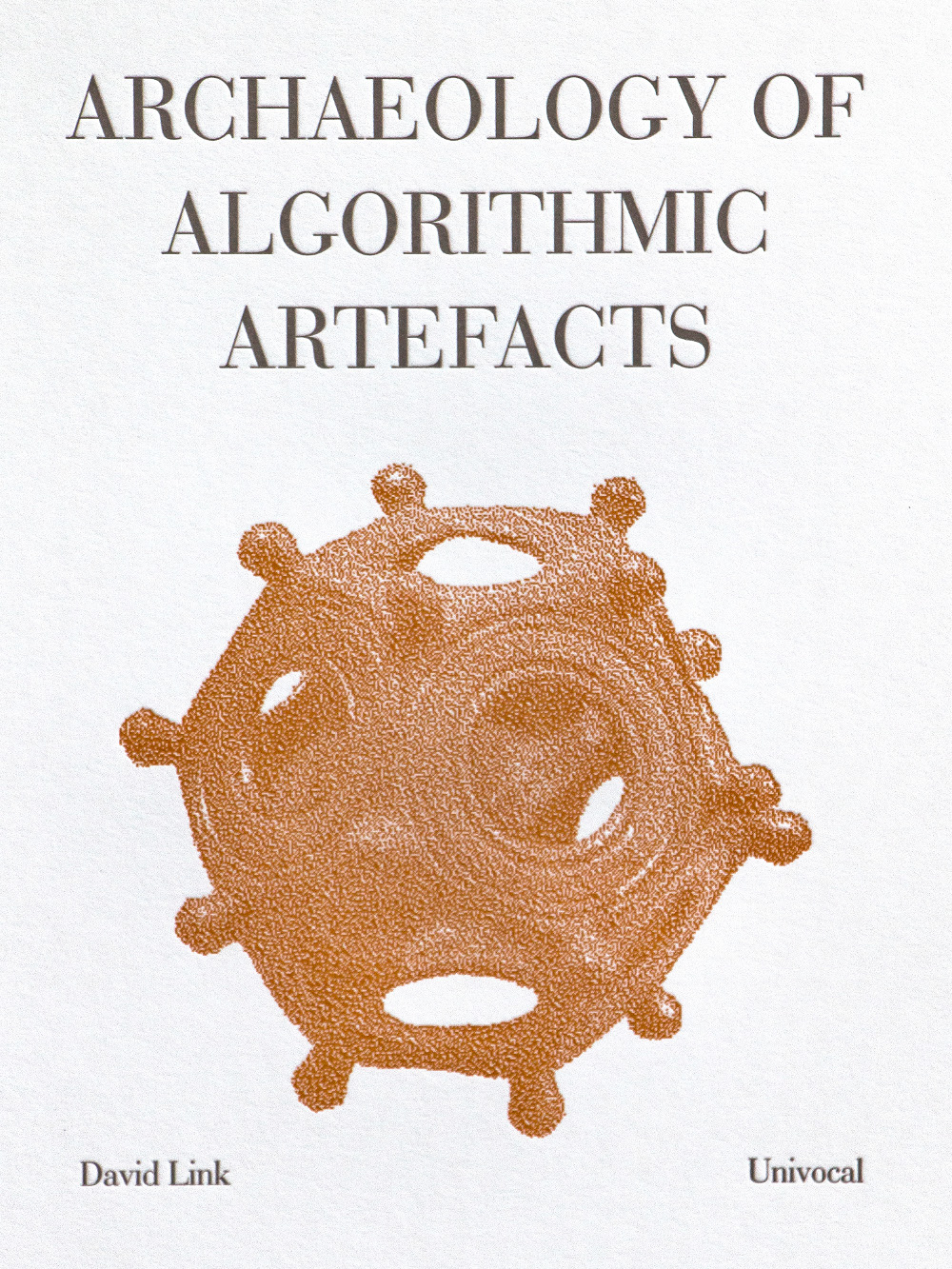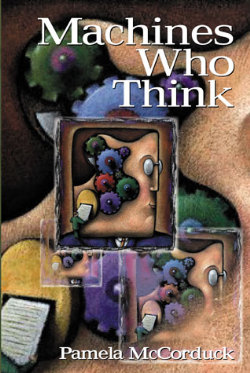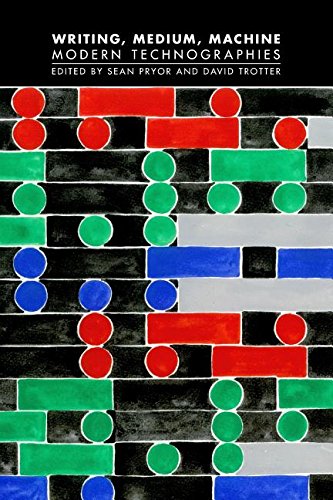David Link: Archaeology of Algorithmic Artefacts (2016)
Filed under book | Tags: · algorithm, apparatus, computing, history of computing, machine, mathematics, media archeology, theory

“Unearthing the cumulus of transient technologies that underlie the fabric of contemporary society
As historical processes increasingly become steeped in technology, it becomes more and more necessary for a discipline to emerge that is capable of comprehending these materialities beyond their shelf life to better understand the fields they inundate such as science, art, and warfare. This effort is further compromised by the inherent complexity and complete arbitrariness of technical languages – especially when they are algorithmic – along with the rapid pace in which they become obsolete, unintelligible, or simply forgotten. The Turing Machine plays a central role in the Archaeology of Algorithmic Artefacts, wherein the gradual developments of the individual components encompassed by this complex technology are placed within the context of engineering sciences and the history of inventions. This genealogy also traces the origin of the computer in disciplines such as mathematics, meta-mathematics, combinatorics, cryptology, philosophy, and physics. The investigations reveal that the history of apparatuses that process signs is in no way limited, as one might think, to the second half of the 20th century, rather it is possible that they existed at all times and in all cultures.”
Publisher Univocal Publishing, Minneapolis, 2016
ISBN 9781937561048, 1937561046
207 pages
Review: Lisa Gitelman (Computational Culture, 2017).
PDF (18 MB)
Comments (3)Pamela McCorduck: Machines Who Think: A Personal Inquiry into the History and Prospects of Artificial Intelligence, 2nd ed. (1979/2004)
Filed under book | Tags: · artificial intelligence, computing, information, machine, robotics, robots, thinking

“Pamela McCorduck first went among the artificial intelligentsia when the field was fresh and new, and asked the scientists engaged in it what they were doing and why. She saw artificial intelligence as the scientific apotheosis of one of the most enduring, glorious, often amusing, and sometimes alarming, traditions of human culture: the endless fascination with artifacts that think. Machines Who Think was translated into many languages, became an international cult classic, and stayed in print for nearly twenty years.
Now, Machines Who Think is back, along with an extended addition that brings the field up to date in the last quarter century, including its scientific and its public faces. McCorduck shows how, from a slightly dubious fringe science, artificial intelligence has moved slowly (though not always steadily) to a central place in our everyday lives, and how it will be even more crucial as the World Wide Web moves into its next generation.”
First edition published by W. H. Freeman, 1979.
Publisher A.K. Peters, Natick, MA, 2004
ISBN 1568812051, 9781568812052
xxx+565 pages
Reviews: Philip Mirowski (AI Magazine, 2003), Richard Ennals (AI & Society, 2004), Mike Holderness (New Scientist, 2004).
PDF (4 MB)
Comment (0)Sean Pryor, David Trotter (eds.): Writing, Medium, Machine: Modern Technographies (2016)
Filed under book | Tags: · literature, machine, media, media archeology, media technology, technology, theory, writing

“This is a collection of thirteen scholarly essays which explores the mutual determination of forms of writing and forms of technology in modern literature. The essays unfold from a variety of historical and theoretical perspectives the proposition that literature is not less but more mechanical than other forms of writing: a transfigurative ideal machine. The collection unearths representations in literature and film of a whole range of decisive technologies from the stereopticon through census-and slot-machines to the stock ticker, and from the Telex to the manipulation of genetic code and the screens which increasingly mediate our access to the world and to each other. It also investigates concepts which articulate the relation between writing and technology: number, measure, encoding, encryption, the archive, the interface.”
Contributors: Ruth Abbott, John Attridge, Kasia Boddy, Mark Byron, Beci Carver, Steven Connor, Esther Leslie, Robbie Moore, Julian Murphet, James Purdon, Sean Pryor, Paul Sheehan, Kristen Treen.
Publisher Open Humanities Press, 2016
Technographies series
Creative Commons BY-SA 4.0 License
ISBN 9781785420061
223 pages
PDF (updated on 2016-11-12, with bookmarks, metadata and compressed, via Malcolm Dean, 2 MB)
PDF (from publisher, 3 MB)

